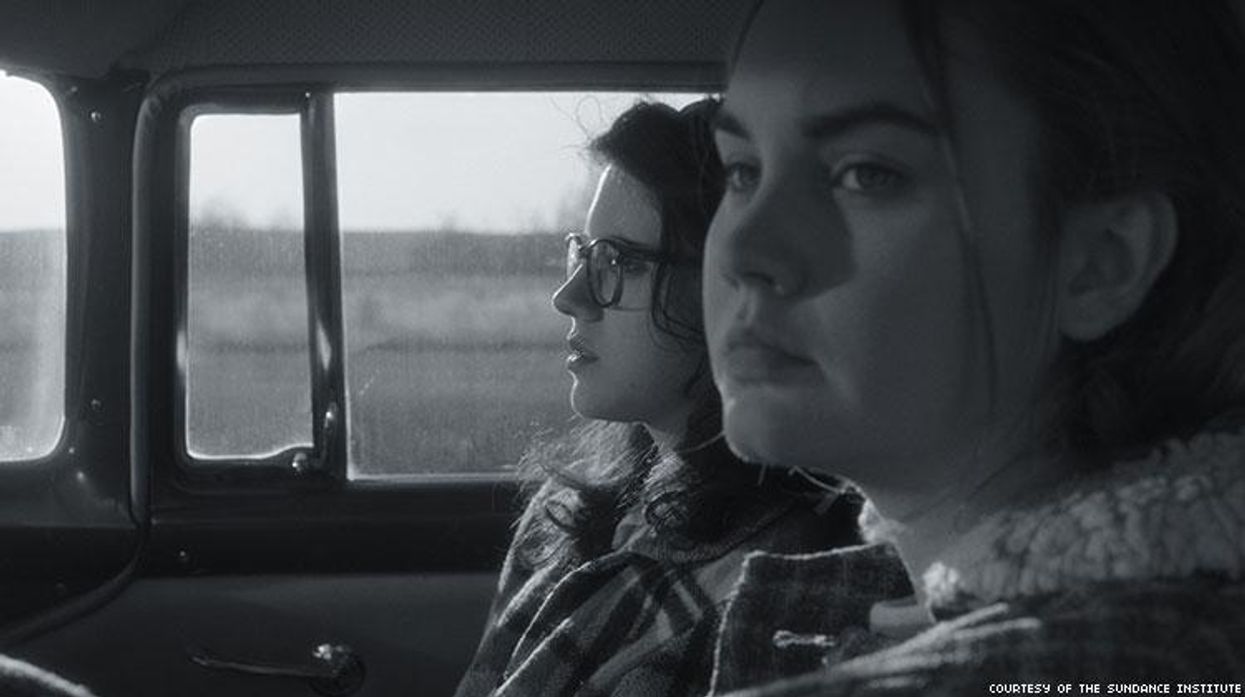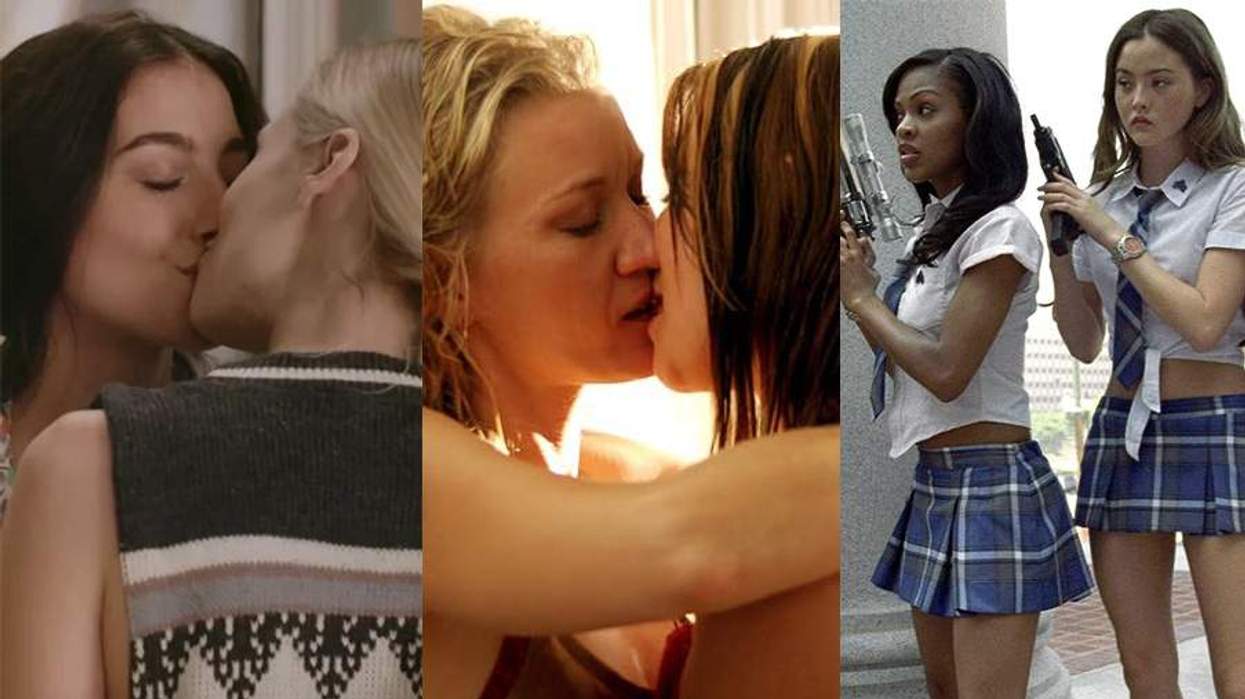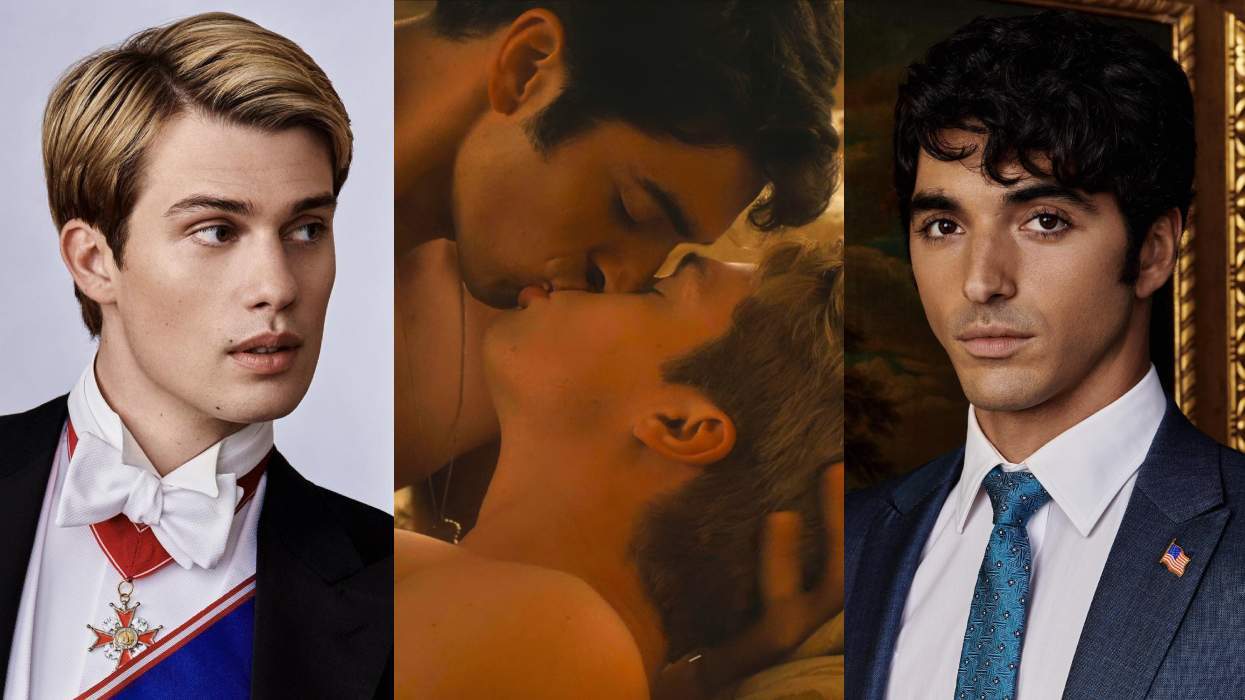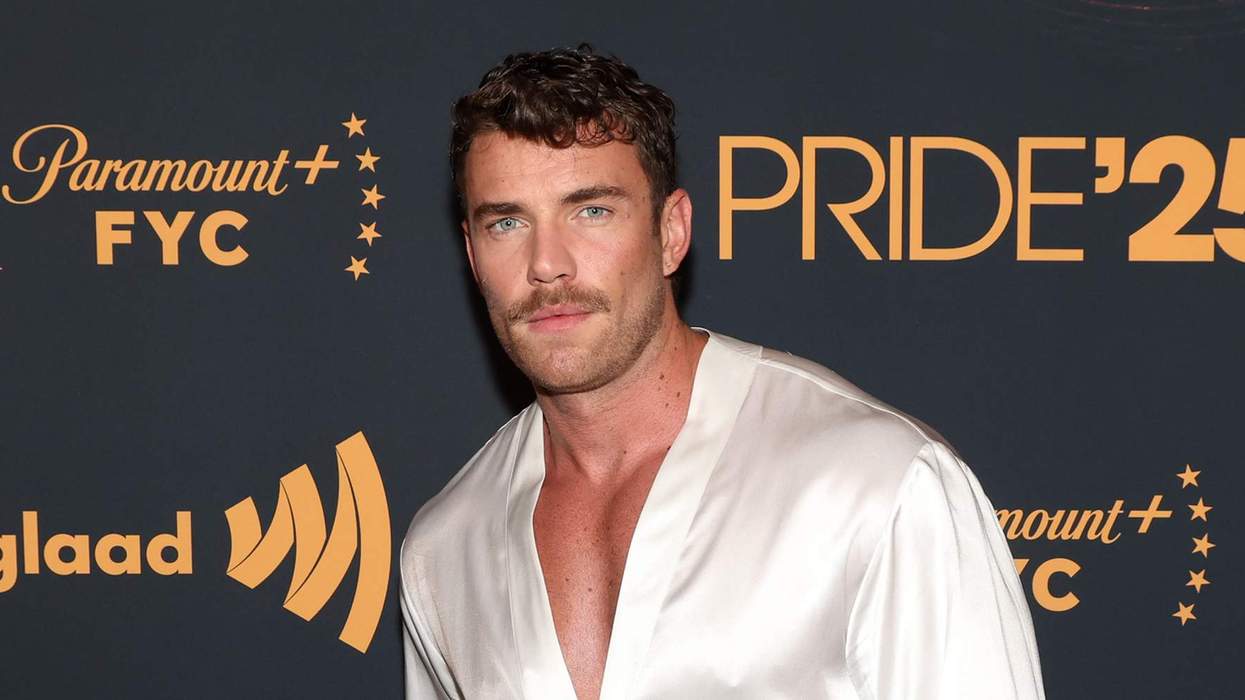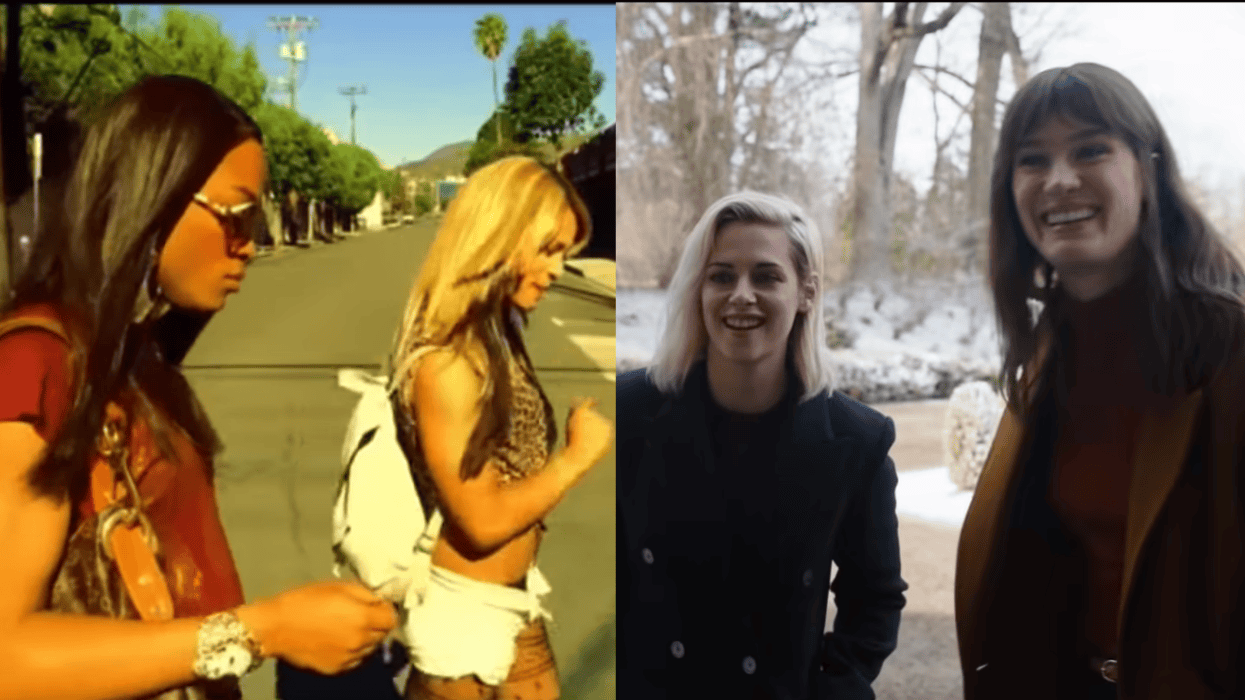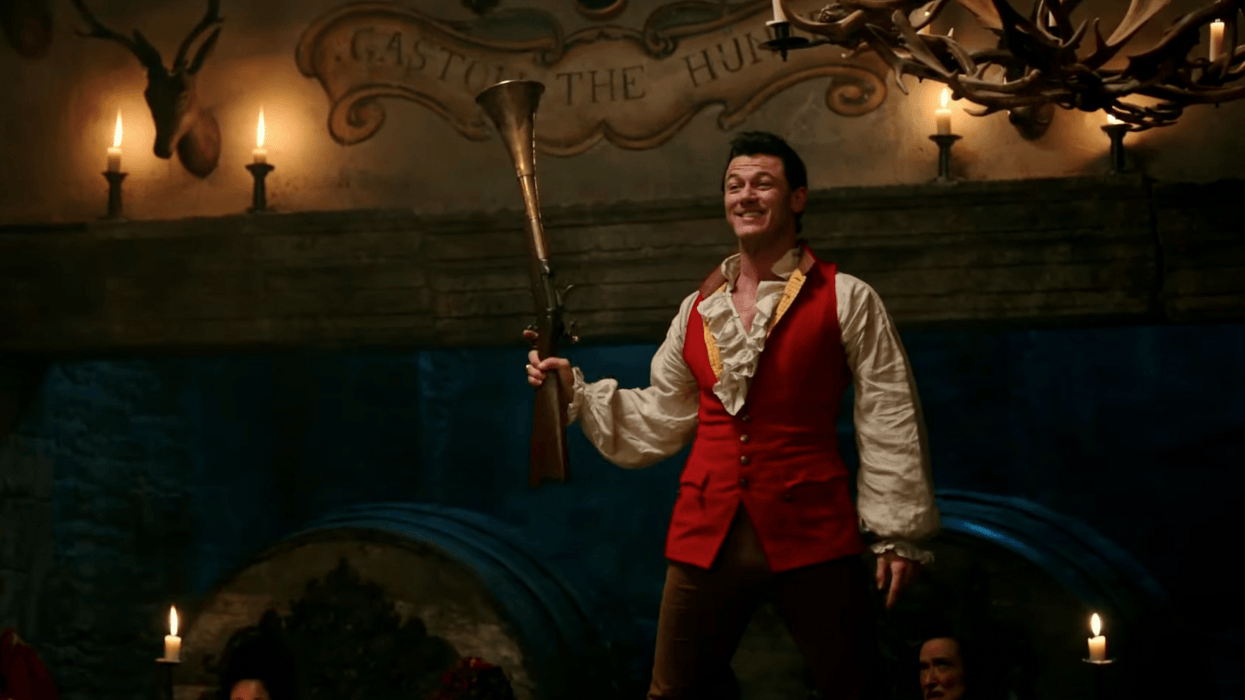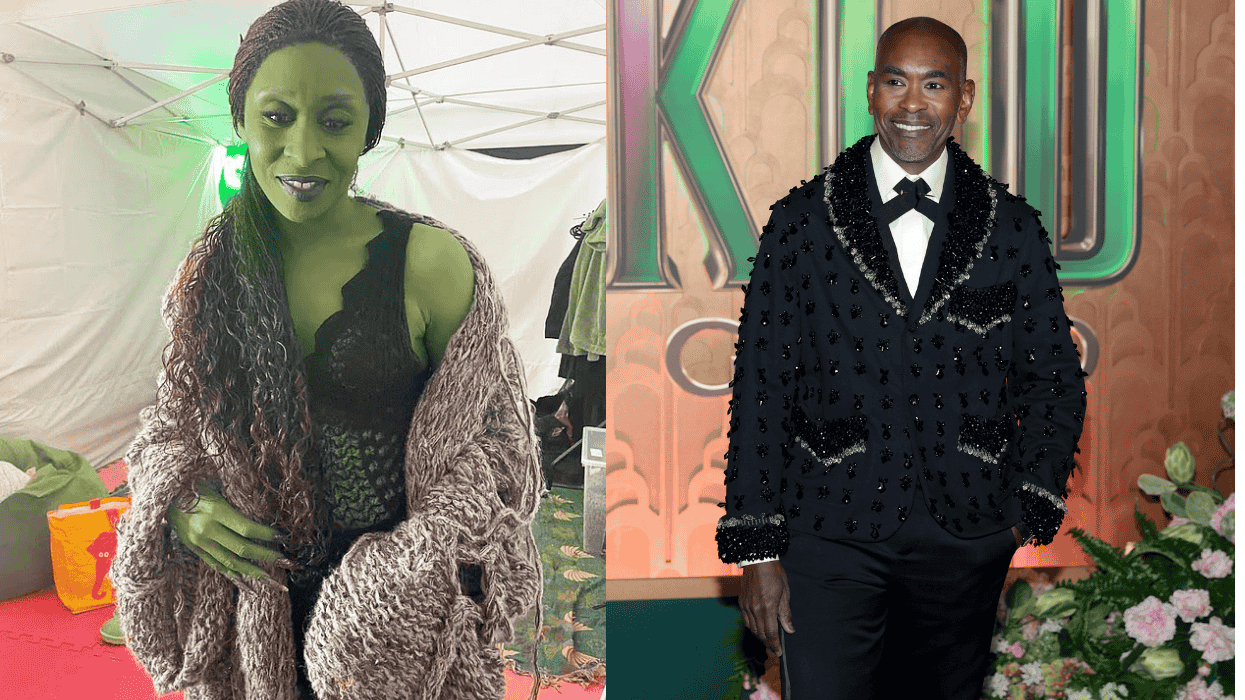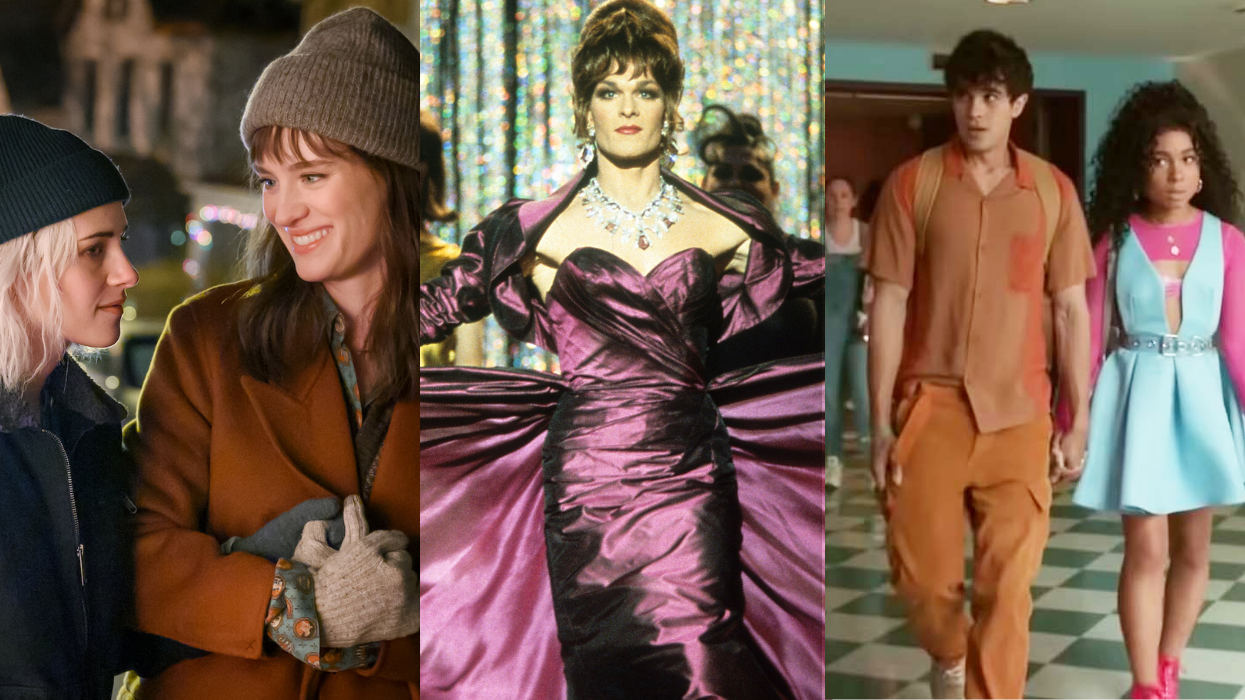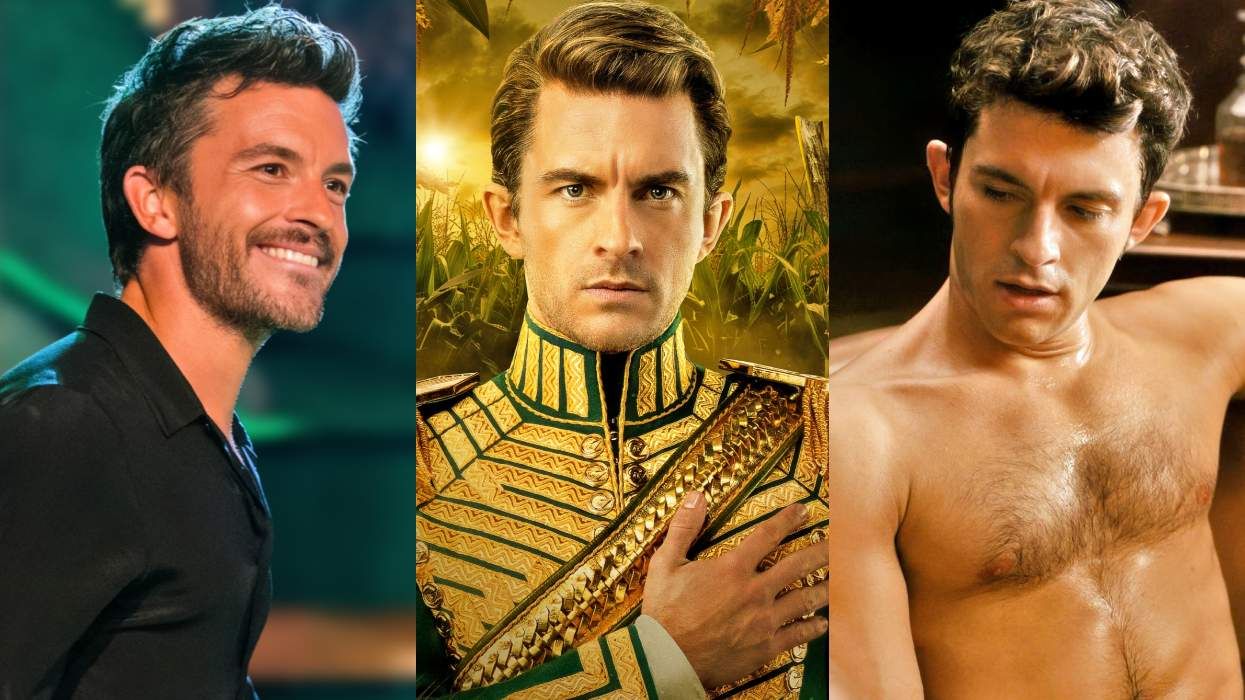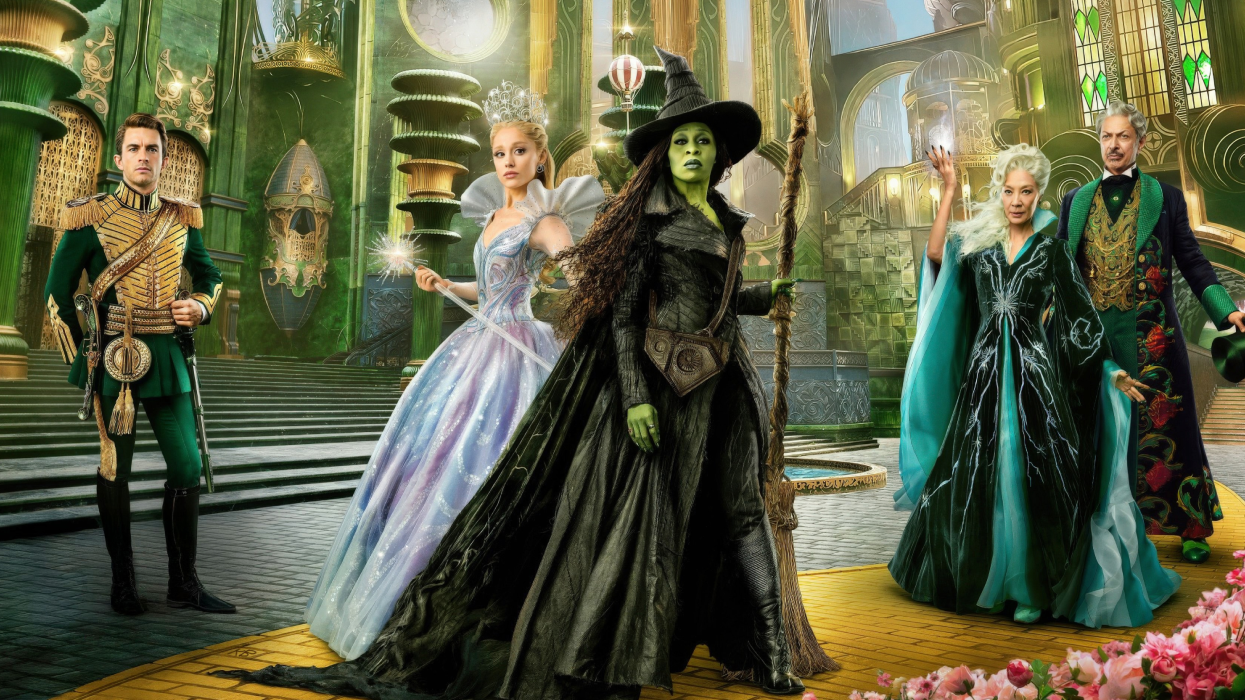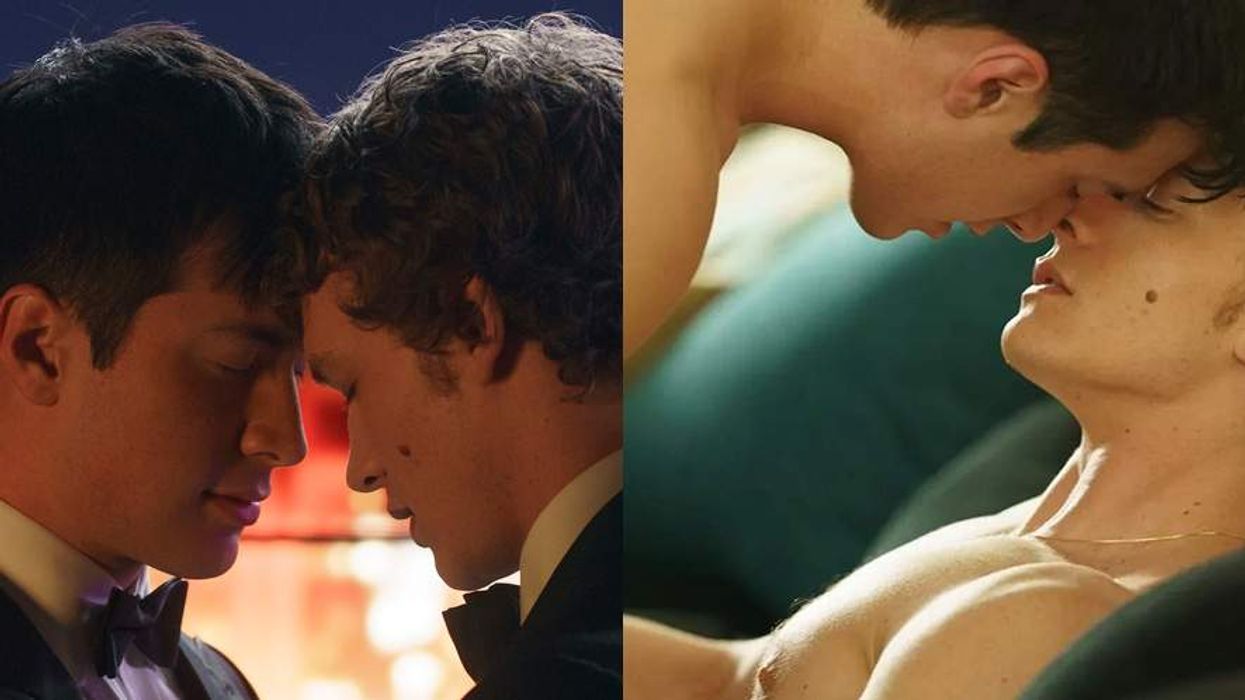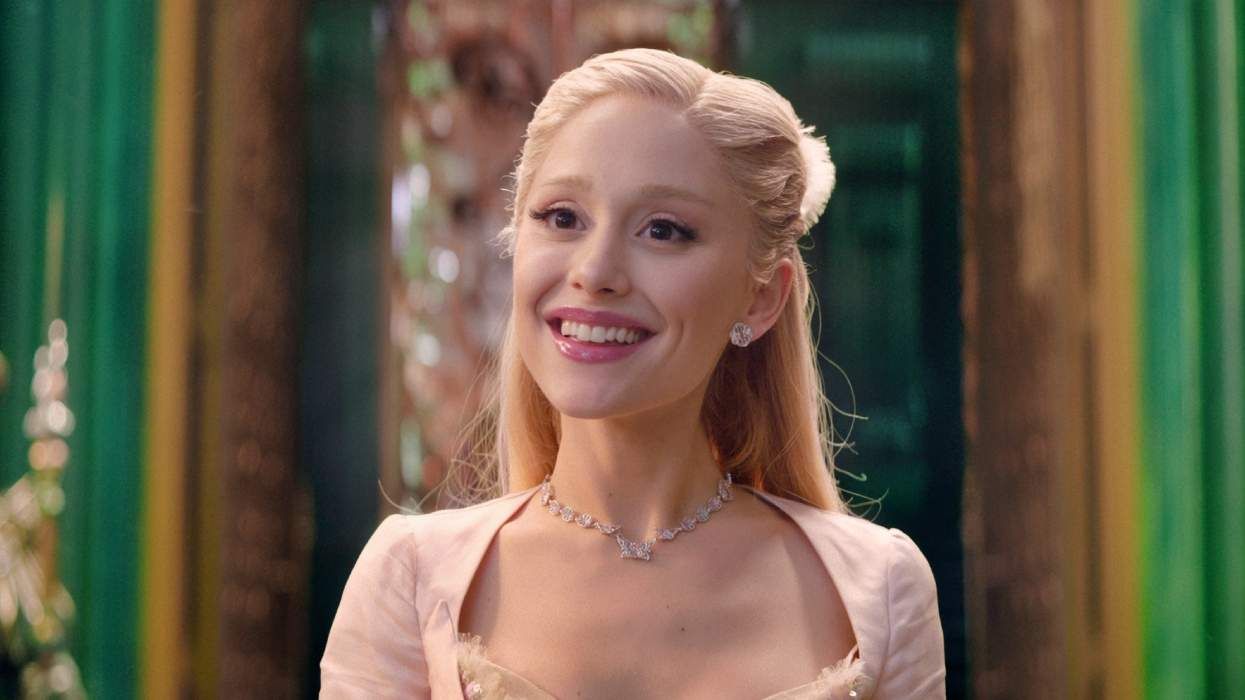Following the Friday night Sundance premiere of Martha Stephen's To The Stars, the cast and crew beamed over their triumph of a packed-out screening at America's leading indie film fest, and there's much to celebrate. But try as I might, I can't shake the unnecessary, magical queer storyline. Liana Liberato plays the wounded, but resilient Maggie Richmond, imbuing her with more dignity than her circumstances, and screenplay, allow.
The drama follows Iris Deerborne (played by Moonrise Kingdom's Kara Hayward) as she blossoms from a self-conscious social outcast into a self-assured and accepted member of her high school in 1960s Wakita, Oklahoma. Her growth is spurred by town newcomer Maggie, a proto-tomboy with a secret. But their community is dominated by toxic men, from teenage boys who sexually harass Iris on the way to school to fathers who bear arms to hunt down a local lesbian when her truth is exposed. That Maggie and Iris form a bond in the midst of fearful men, and their sublimated sisters and mothers, is a testament to their grit and open hearts. By comparison, the shallowness of Iris' frenemies mirrors the relationships her mother Francie (played by Jordana Spiro) has with other women. It's a vicious cultural cycle that Iris and Maggie rise above.
Maggie's introduction to the narrative shows she does not play by the town rules. On a dusty road to school, Iris is accosted by three boys in a truck. When one of them gets out, he's suddenly pelted by a large rock. With a close-up on the blood coming from his wound, the camera pans over to Maggie standing outside her car, giving eye-for-an-eye to the boys.
Later, Iris is bathing late-night in her secret place, a pond treated by the town as haunted because a woman committed suicide in it. It's the perfect respite for Iris. As she floats in the water in her evening gown, Maggie enters, naked, happy, and free. It's the first time the two bond leading to an eventual ritualistic baptism.
The metaphor of water baptism has recurred for centuries in film, but as of late, it's become a trend in queer films like Stephen Cone's Henry Gamble's Birthday Party and Jeremiah Zagar's We the Animals. While each film has a unique use of the imagery, To The Stars' is the most delightful in representing the bond of Iris and Maggie's friendship and Iris' personal liberation. But that baptism is also the source of the film's weakness: how it depicts Maggie as a lesbian.
Granted, in Maggie's 1960s world, being lesbian was taboo. In fact, the reason her family moved to Wakita was to get away from the "corrupting" influences of city life. Her father Gerald (played by Tony Hale) is broadly Christian, without being too specific about his theology. But more than anything, he's a fearful, yet domineering figure. Though Maggie promises her father she'll change and turn away from her sexuality, naturally, she cannot.
Maggie transforms Iris inside and out. She helps her find her value and takes her to see local beautician Hazel (played by Adelaide Clemens) for a makeover. On one hand, Maggie is acting as a lesbian fairy godmother. On the other, she's helping Iris integrate into a social strata neither wish to enter. As Iris blossoms, Maggie grows frustrated with her own repression, and like splintered wood, she frays in directions she can't control. She winds up in bed with fellow closeted lesbian Hazel, but when one of her frenemies sees the two women making love, all hell breaks loose in town. A small mob of men form and run Hazel out of town. Maggie goes missing.
Only once Gerald begins to think that Maggie is dead does he begin to own his role and resulting guilt in the ordeal. But did it really need the sacrifice of Maggie (I won't tell you her true fate) for the townspeople to wake up to reality? Such a character choice reinforces Maggie as a magical queer who's role is solely to help Iris become a woman. How Maggie's own fate is handled squarely places her in the problematic trope that's as old as the black and white styling of the movie's cinematography.
The film ends with Iris walking to school on the familiar dusty road. She's met by the same three boys, but this time, thanks to Maggie's encouragement, she defends herself. Later, she swims in the pond she once shared with Maggie, this time with her new boyfriend Jeff (played by 20th Century Women's Lucas Jade Zumann). Though Maggie's fate is alluded to, ending on Iris furthers that harmful trope by showing Maggie's whereabouts isn't as important as Iris' development.
To its credit, To The Stars features gorgeous cinematography and thoughtful direction, but this 20-year-old script by Shannon Bradley-Colleary reflects values closer to Green Book than Sidney Poitier in the culture-shifting In the Heat of the Night. Maggie matters, but you may not know it by how she's discarded after fulfilling her purpose in the story. That's something worth talking about because the Maggie's of the world are worth fighting for.
RELATED | 'Leaving Neverland' Could Forever Ruin Michael Jackson's Legacy


